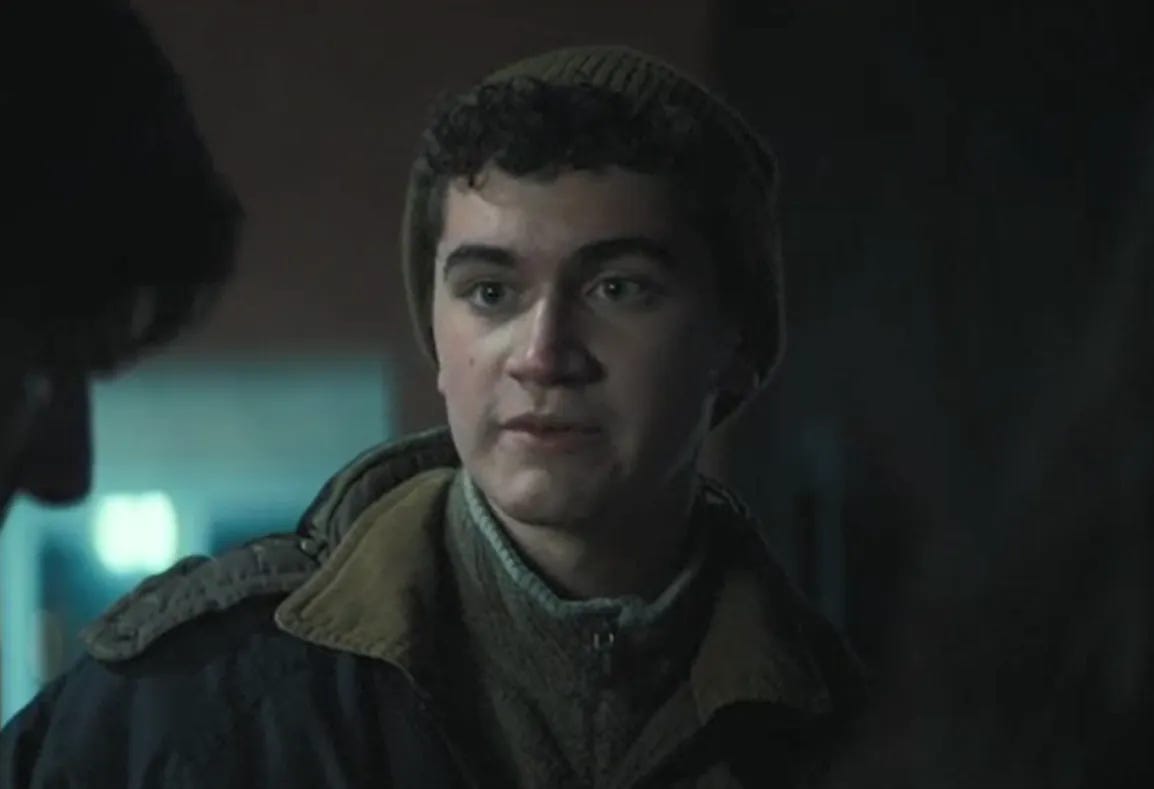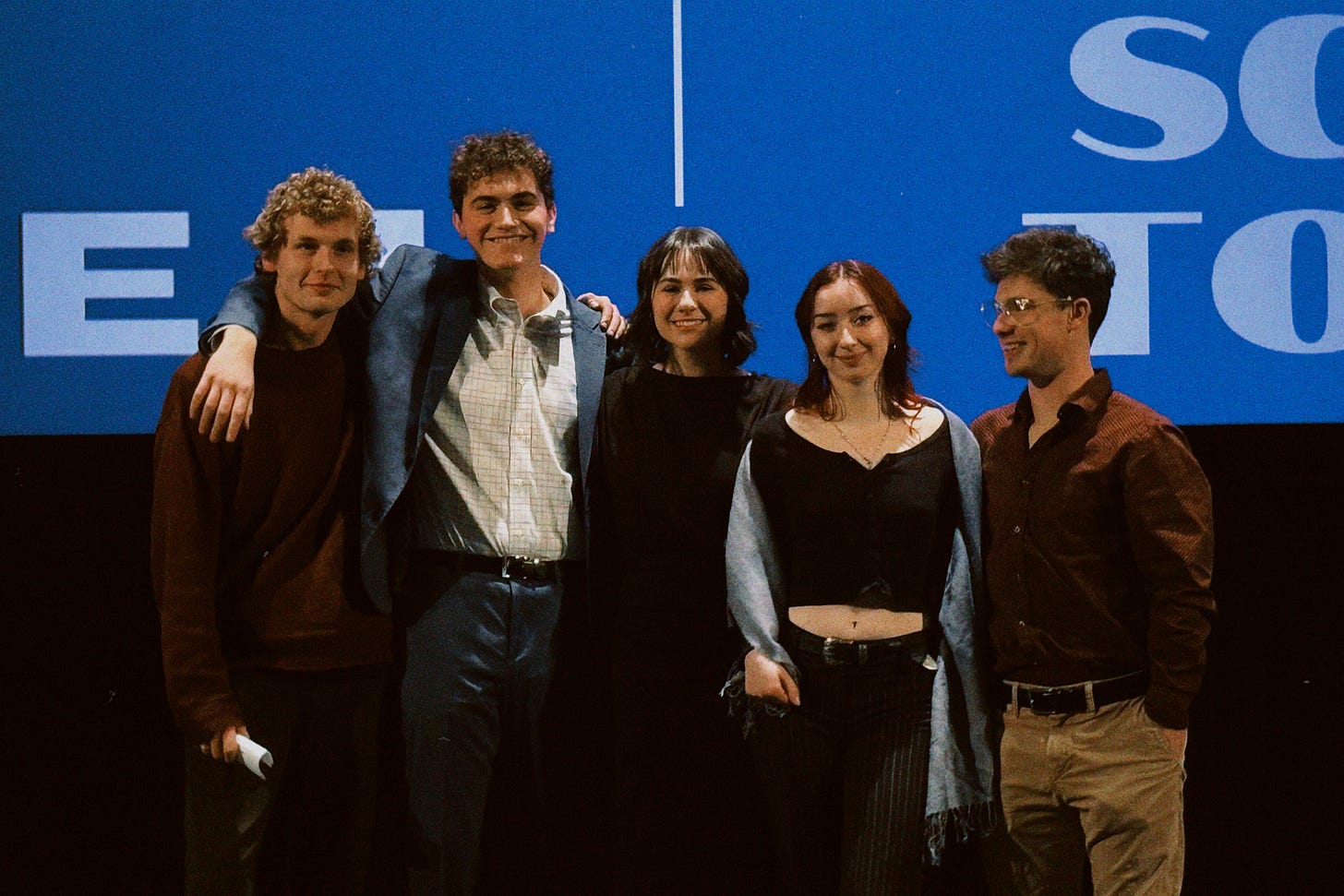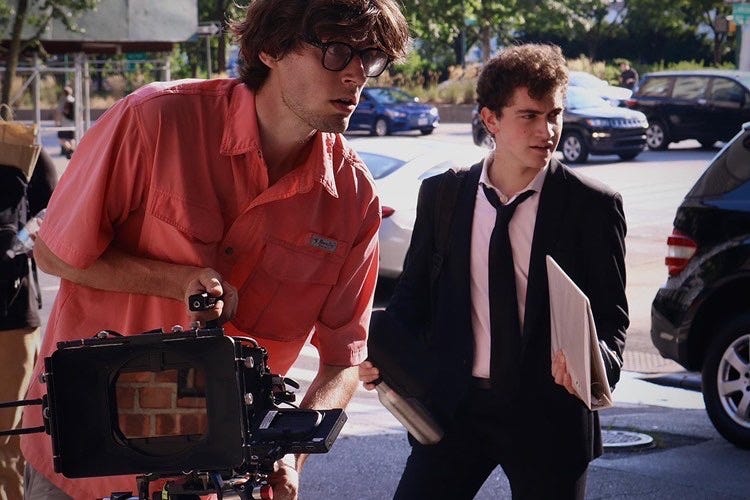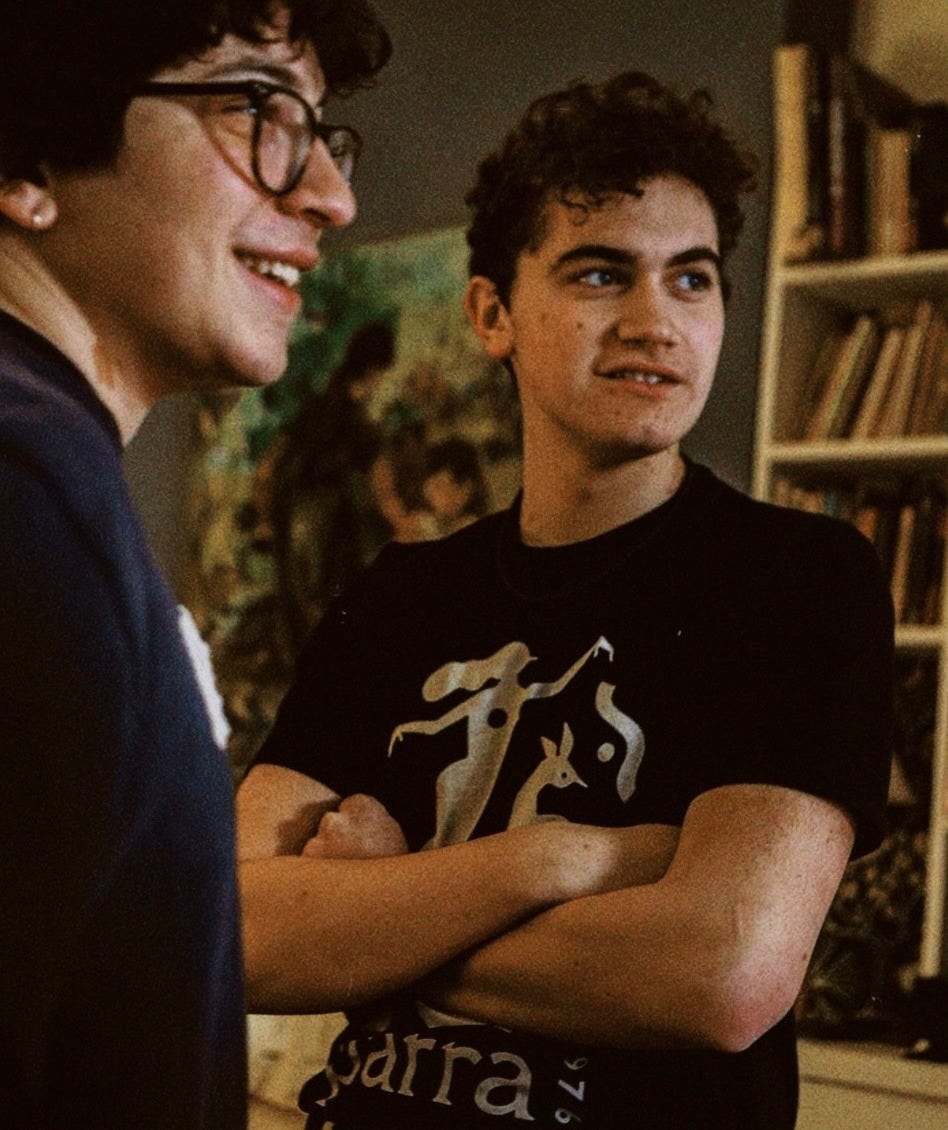“I Got My First Check from Severance and Spent It on Festival Submissions" — A Conversation With Hudson Flynn
Article by Brynne Norquist
Last week I sat down with Hudson Flynn, who you might recognize from Season 1 of Severence. Yup, he was one of the activists against Lumon.
After he got his first check from that gig, he didn’t go celebrate, or go on some shopping spree… he used it to submit his film to festivals. That alone tells you everything you need to know about how seriously he takes this work.
That moment led to a much bigger conversation about rejection, film school, ambition, and the ways we show up for each other as filmmakers.
Hudson isn’t interested in clout or perfection. He’s focused on making honest films. And he had a lot to say that I think a lot of us need to hear.
Intentional Festivals, Not Just Famous Ones
When Hudson finished his short Friday in his senior year of high school, a film about the emotional aftermath of a school shooting, it wasn’t just about getting into festivals. It was about making sure the work was seen.
“That film took so long to finish… it really felt like I owed it to my cast and crew to get eyes in front of this movie.”
Submitting your film to festivals is a form of respect to the crew that put so much energy into making it. Rather than defaulting to the “Sundance or bust” approach, he submitted primarily to student categories.
“I think it’s very easy to get cocky and also naive… Like submitting our shit to Sundance thinking we’re gonna hear back.”
It was a strategic, respectful choice that helped the film actually get programmed—and win. Friday went on to win Best Overall Film at the All American High School Film Festival.
It’s not just about which festivals are the biggest. It’s about finding the audiences that are aligned with your work, and meeting them where they are.
That’s exactly what we’re building with Hiike. We make it easier to find the right festivals for your film through a personalized recommendation system and a centralized dashboard for organizing submissions. If you're ready to take the guesswork out of submitting, you can join our waitlist now at https://hiike.com. We go live in just a few weeks.
Releasing Work Means Letting Go of Control
Hudson is the first to admit he’s a perfectionist. But over time, he’s learned that withholding work can actually hold you back.
“I often don’t put things out because I’m obsessive about meeting a certain quality. But if it has an effect on someone… you can’t tell them they’re wrong for liking it.”
Sharing your work doesn’t mean it has to be flawless. It just has to be real. This shift in mindset allowed Hudson to revisit and finish pieces that had previously been shelved, including multiple shorts and a pilot he’s wrapping post on now.
“I’m trying to tie up my loose ends by the end of the year… I want to be moving forward.”
Letting go of control doesn’t mean sacrificing quality. It means giving your work a chance to live on beyond set.
Film School Should Teach Collaboration, Not Competition
Hudson’s take on film school was one of the most nuanced I’ve heard. He values it. But not for the reasons most people think.
“It’s a really good playground. A place to dare to fail.”
Still, he’s seen how film school, especially conservatory environments, can foster toxic dynamics, especially when students aren’t taught how to collaborate.
“I’ve seen as much, if not more, conflict come from admiring each other’s work… because instead of saying, ‘That really moved me,’ it turns into, ‘I need to beat that guy.’”
The result? People stop supporting each other and start protecting their own egos. That’s a waste. Film is collaborative by nature. And if you’re not learning how to lead with openness and clarity, you’re not learning how to lead at all.
“As a writer-director, you’re in a leadership position. You have to let people co-author with you.”
Success Feels Better When You Share It
Hudson’s had his work screened at Lincoln Center…twice.
But what stood out wasn’t the venue. It was the fact that he turned both screenings into platforms for his peers too.
“It was a million times more fun when I brought all my filmmaker friends… There was a bigger outreach. There was a bigger celebration.”
You don’t have to wait to be selected. You can make your own moment. Whether it’s self-producing a local screening or programming a short block with friends, that matters. Hudson’s screenings weren’t just about showing his films. They were about showing up for a community.
There’s Nothing Cringe About Wanting Success
This was a subtle but important theme in our conversation. Hudson’s not afraid to say he wants people to see his work. That he wants to keep making things that matter. That he wants an Oscar someday.
“People act like it’s not cool to want traditional success. But I do.”
There’s a difference between wanting recognition and chasing validation. Hudson isn’t looking for attention. He’s looking for longevity. And he’s building it the way that actually works—by doing the work, over and over, and trusting that it’ll find its place.
“I just want to keep making things that matter.”
There are a lot of conversations right now about how hard it is to make it in film. And they’re not wrong. But Hudson reminded me that persistence is still a strategy. That community still matters. And that ambition doesn’t have to be loud or ego-driven to be powerful.
Sometimes it’s as simple as using your first check (from Severance!) to pay submission fees. Because you believe your film deserves to be seen, and will impact the people who see it.









